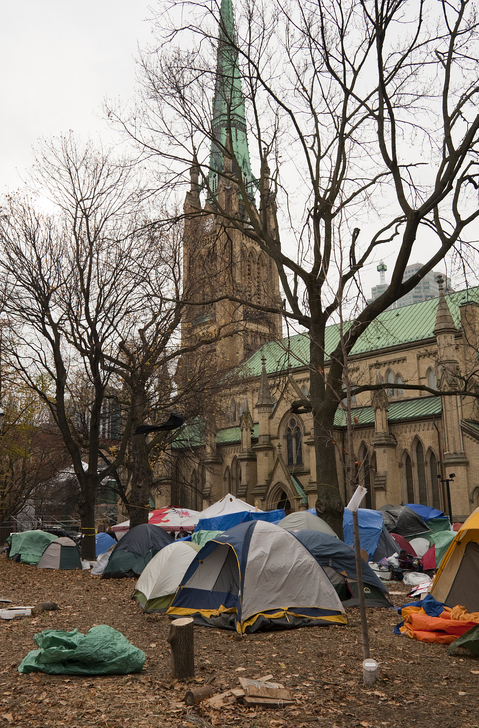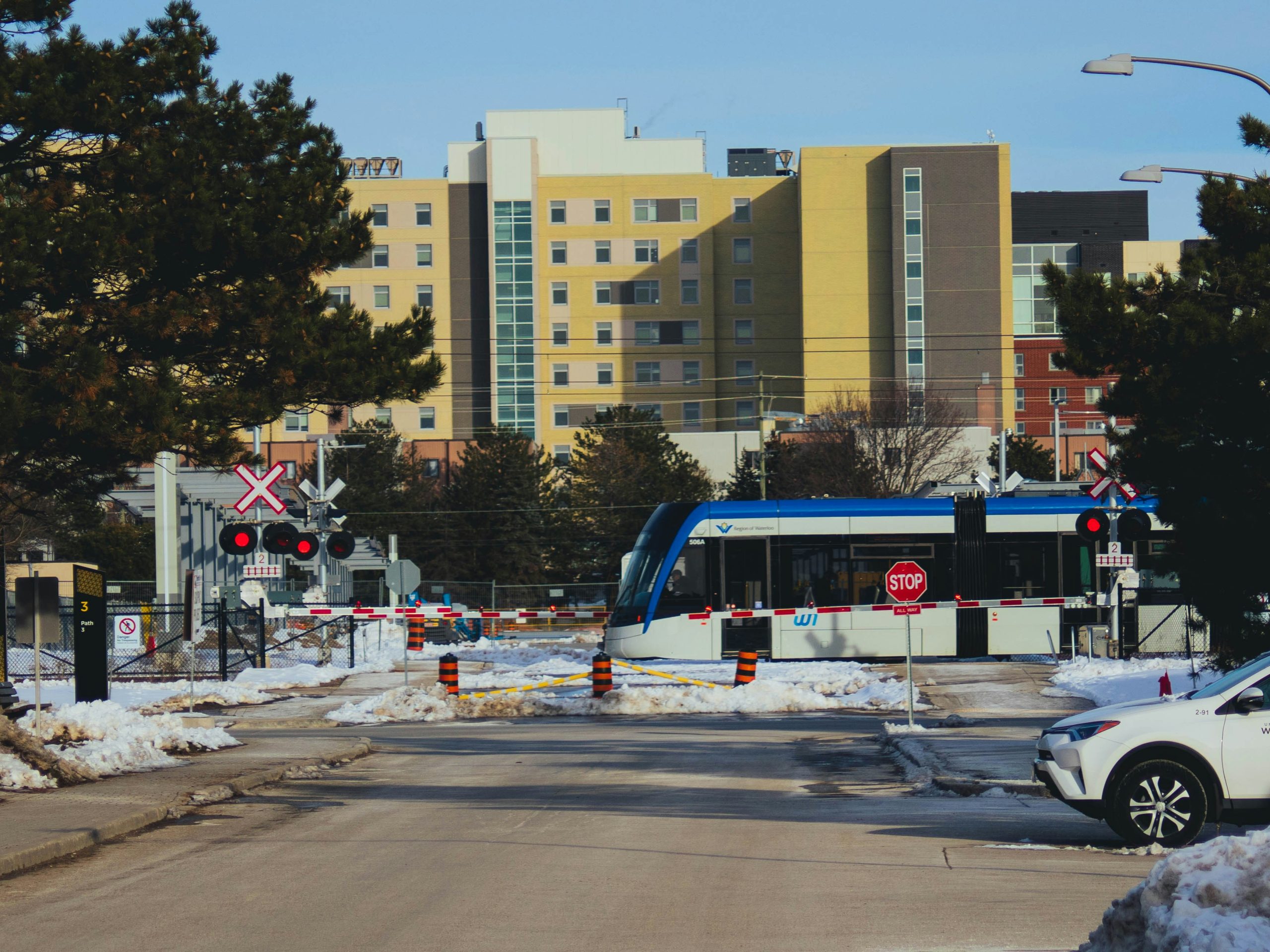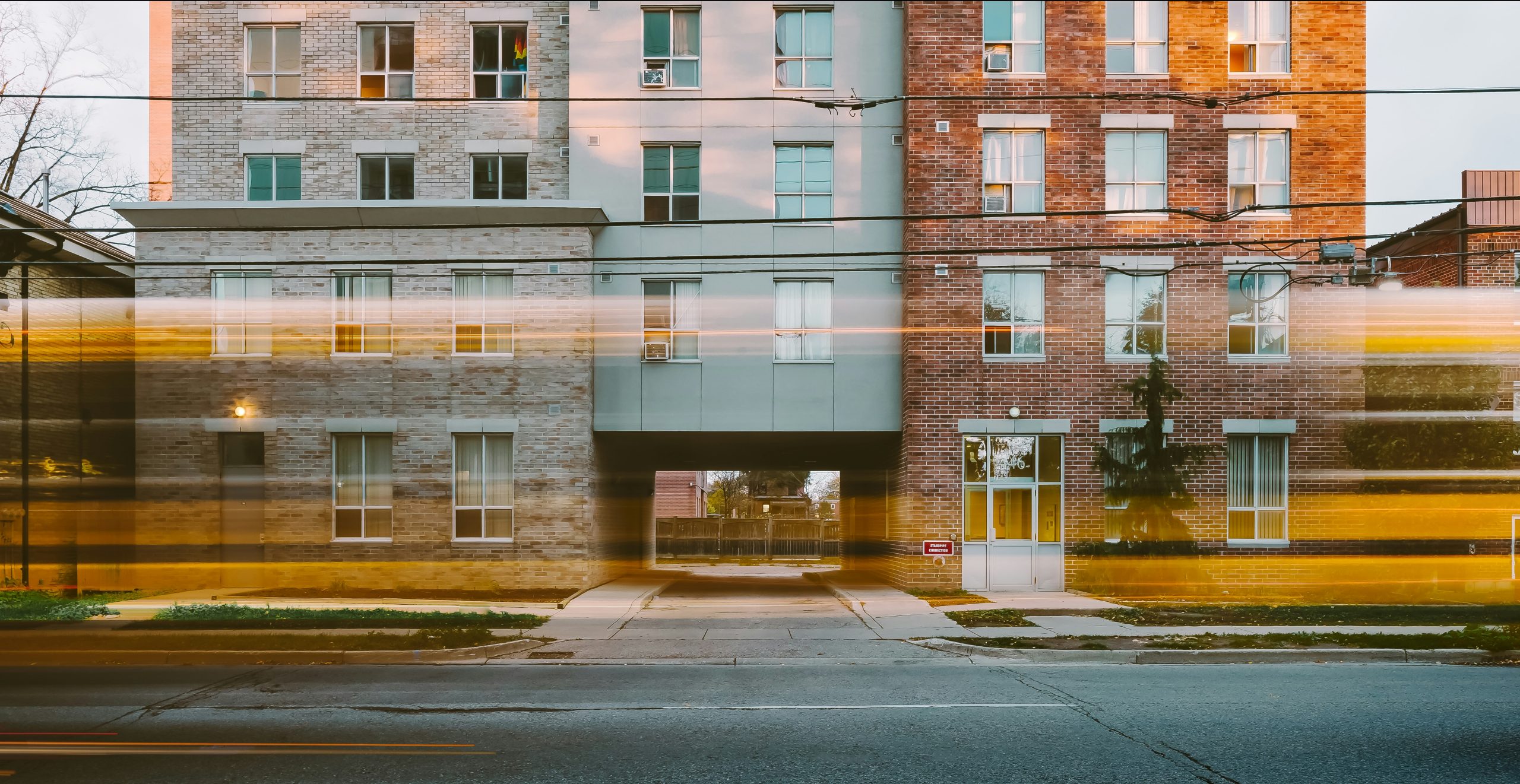Featured Guest
You’ll find this guest among our growing roll of Urban Champions.
-

Nakuset
ED, Native Women’s Shelter of Montreal
-

Michael Vonn
CEO, PHS Community Services Society
-

Martin Blake
Vice President, Daniels Corporation
5 Key
Takeaways
A roundup of the most compelling ideas, themes and quotes from this candid conversation
1. COVID-19 has amplified the crisis of homelessness
Michael Vonn argues that the COVID-19 pandemic has see the “outing of the non-public poor”. People are showing up on the streets that were not part of previous homelessness counts: those that were lodging with people in precarious housing or couch-surfing are now living in tent encampments alongside those who couldn’t make their rent because their roommates left last month, and those experiencing mental health and addictions challenges.
2. The situation is dire as the winter approaches
Catherine McKenney argues that the urgent homelessness crisis needs the same level of urgency and attention that the pandemic has been receiving. In Ottawa, 2.5 per cent of 128,000 renter households have not been able to make payment during COVID-19. These households are at risk of becoming homeless as the seasons change, and as Ontario prepares to lift its moratorium on evictions. Similarly, there is a shortage of respite centres across the city, where people can access a washroom and shower. “It’s beyond an emergency,” she says.
3. Intergovernmental alignment is critical
Derek Ballantyne notes that municipalities are saddled with the immediate needs of homelessness on their city streets. But given Canada’s constitutional arrangement, municipalities have found themselves at the limits of their ability to finance or provide solutions. Federal government policies and programs are useful and helpful, he argues, but if provincial frameworks are out of line and priorities are out of scale, how do we ensure all these pieces work together to close the significant gaps that are still ahead of us? Organizing between governments to connect federal announcements to action on the ground is critical.
4. Looking to the long-term horizon
Martin Blake notes that in the face of instant crises, developers are unable to respond in the high-rise environment for several years. Facing a longer-term horizon to affect change, developers are delivering housing today that was conceptualized six years ago. He advocates for a systems approach. Policy and zoning changes will make all the difference—inclusionary zoning for example, if implemented properly, would be game-changing.
5. Key ideas in the next phase of COVID-19
Each panelist offers an idea on how to move forward in the next 100 days of the pandemic. Says Vonn, “partnership should be emphasized.” Blake and Ballantyne urge for policy and zoning changes. McKenney proposes the importance of acquisitions as an immediate solution. And Nakuset advocates that what we need in the next 100 days is compassion for each other, and especially for those most vulnerable among us.
Additional Reading & Resources
Full Panel
Transcript
Note to readers: This video session was transcribed using auto-transcribing software. Manual editing was undertaken in an effort to improve readability and clarity. Questions or concerns with the transcription can be directed to events@canurb.org with “transcription” in the subject line.
Full Audience
Chatroom Transcript
Note to reader: Chat comments have been edited for ease of readability. The text has not been edited for spelling or grammar. For questions or concerns, please contact events@canurb.org with “Chat Comments” in the subject lin
From Canadian Urban Institute: You can find transcripts and recordings of today’s and all our webinars at https://canurb.org/citytalk
12:01:32 From Canadian Urban Institute : Welcome! Folks, please change your chat settings to “all panelists and attendees” so everyone can see your comments.
12:02:56 From Canadian Urban Institute : CUI is very proud of our COVID Signpost 200 Days report! You can read it at https://covidsignpost.ca/
12:04:17 From Canadian Urban Institute : Attendees, let us know where you are joining from!
12:04:35 From Canadian Urban Institute : To support CityTalk and the Canadian Urban Institute’s other city building initiatives, please donate at www.canurb.org/donate .
12:04:50 From Peggy DuCharme to All panelists : Peggy DuCharme, ED, Downtown Rideau B.I.A., Ottawa
12:04:54 From Maria Bravo : Hello from Montreal!. Thank you all for your contributions.
12:04:56 From Canadian Urban Institute :
Micheal Vonn, PHS Community Services
Homepage
Nakuset, Montreal Native Women’s Shelter
@NakusetS
linkedin.com/in/nakuset-sohkisiwin-0392a185
Martin Blake, Daniels Corporation
Home
Derek Ballantyne, New Market Funds & CMHC
@DBallant
linkedin.com/in/derek-ballantyne-4855459
Catherine McKenney Somerset Ward, Ottawa
@cmckenney
linkedin.com/in/catherine-mckenney-1706132
12:05:33 From Canadian Urban Institute : You can find transcripts and recordings of today’s and all our webinars at https://www.canurb.org/citytalk
12:06:20 From Canadian Urban Institute : Keep the conversation going #COVIDSignpost #citytalk @canurb
12:06:37 From Julieta Perucca to All panelists : Hi everyone – Julieta Perucca from The Shift here. Thank you CUI for this great panel! www.maketheshift.org
12:10:12 From Canadian Urban Institute to Julieta Perucca and all panelists : Hi, Julieta! Can you change your chat settings? Only the panel saw that. Thanks!
12:10:26 From Julieta Perucca : Hi everyone – Julieta Perucca from The Shift here. Thank you CUI for this great panel! www.maketheshift.org
12:10:51 From Aimée González Ferriol : Hello from Montreal! Thanks for organizing this panel.
12:11:37 From LoriAnn Girvan : Bonjour de Gatineau – important conversation – thank you, CUI
12:19:26 From Julieta Perucca : Elected officials and city staff have come together from across Canada to detail how cities can be the agents of change in order to help the Federal government meet its commitments. They issued a Call to Action Letter last week. You can read it here: https://www.make-the-shift.org/righttohome/
12:20:15 From Maria Bravo : Vacancy rates in buildings in downtown Montreal are high. Could a comitee ask the municipality and owners to addapt some places to help vulnerable people at least during this winter.
12:21:04 From Catherine Soplet : Catherine Soplet here, from Mississauga in the Region of Peel.
In Ontario, the impact of Bill 184 is resulting n a tsunami of evictions – on October 8, a response framework to prep for winter is expected in a report from staff.
The report will come on the same Agenda as a response to rat infestation, arising from earth moving for infrastructure and disruption of rodent food supplies as human food supply has also shifted with pandemic.
Councillors and staff were ashen September 10, when they realized the magnitude and even larger health risk than they at first imagined. Here’s this morning’s tweet https://twitter.com/Soplet/status/1311642971088060417
12:21:53 From Leilani Farha : no sound
12:22:11 From David Crenna : As Derek implies, there is a large regulatory “overburden” at the municipal level that severely limits fast action via shifts in the existing stock, regardless of policy and program intent…
12:23:59 From Julieta Perucca : Here is the Right to Home Municipal Call to Action! https://www.make-the-shift.org/righttohome/
12:24:23 From Leilani Farha : I agree with Derek about the need to work on cohesion – and the pandemic is the right time or the necessary time to do that. Bright jurisdictional lines need to be dimmed further. I am interested to know how we make that happen.
12:24:38 From Canadian Urban Institute to Nakuset(Privately) : Hi, Nakuset! Are you okay? Could you put yourself back in your video frame?
12:25:17 From Leilani Farha : The fact, from my vantage, that all orders have govt have the SAME international human rights obligations should be a good starting place.
12:32:15 From Catherine Soplet : MARTIN WANTS INCLUSIONARY ZONING !!!!
THANK YOU!!
12:33:49 From Catherine Soplet : SUGGESTION: Mandate all new builds and extreme renos for universal design – so that illness that leads to immobility does not automatically lead to a housing crisis – a move, and sometimes the experience of homelessness
12:37:24 From Leilani Farha : Again, agree with Derek. Start with a quick audit of all vacant units that could be used immediately or repurposed quickly. And then quick action.
12:38:05 From Leilani Farha : But I include ALL vacant units in that. Investor owned unoccupied, for example.
12:39:09 From LoriAnn Girvan : Yes – acq/rehab – including office buildings and downtown large footprint retail . End single family zoning a la Minneapolis
12:39:39 From David Crenna to All panelists : Yes, indeed! Here’s the basic math: all solutions based on new units are going to require up to 3 years even with very fast approvals. Homeless people are going to start dying in 3 months or less!
12:40:22 From Canadian Urban Institute to David Crenna and all panelists : Hi, David! Can you change your chat settings? Your comment only went to panelists. Thanks!
12:41:20 From David Crenna : Yes, indeed! Here’s the basic math: all solutions based on new units are going to require up to 3 years even with very fast approvals. Homeless people are going to start dying in 3 months or less
12:42:23 From David Crenna : With so many restaurants closed, even when they let people use washrooms, those are gone too!
12:43:20 From Lisa Cavicchia : Our good friend Mary Wiens just produced this lovely 9 minute video featuring an indigenous woman moving from a COVID encampment into supportive housing. https://www.youtube.com/watch?v=j-xFPV7FRZU
12:45:51 From LoriAnn Girvan : Are there examples of regional coordination and solutions? The migration of households with remote working options to other urban/secondary towns, suburban and periurban communities is real and having immediate impacts on land values and availability of affordable stock.
12:46:05 From David Crenna : The technically-available supply is in the hundreds of thousands of units, but COVID-19 has understandably made people very leery of sharing…
12:46:51 From Leilani Farha : Thanks for sharing that @LisaCavicchia. The encampments springing up across the country are homeless people telling us very clearly that shelters are not where they want to be.
12:46:53 From Catherine Soplet : Yesterday, Jay Pitter raised the question of getting the racialized data for those who are street-involved and experiencing homelessness – how do today’s panellists feel about that?
12:48:19 From Catherine Soplet : Would it help, where some municipalities have answered the call to end racism, especially anti-black racism –
and also, the municipalities that have declared that climate change is a crisis – because racialized people and marginalized people and low income people are most impacted by extreme weather events.
12:48:45 From Janice Campbell : Yes, a “grab and GO” initiative needs to happen.
12:50:15 From Canadian Urban Institute : Keep the conversation going #COVIDSignpost #citytalk @canurb
12:50:35 From Christina Sisson : You have to understand what the process and needs are to ensure the funds meet that downloaded activity!
12:51:45 From Leilani Farha : Ofc its not only about money or supply. Homelessness and housing crises will not be solved through supply side solutions. There’s a whole plethora of things required. Look at the abandonment of tenants across the country. Facing evictions without protections in the midst of a pandemic. Some will survive eviction, others will become part of the homeless population. Where is the regulation of private equity and asset management firms that own through REITS approx 20% of our housing stock and apply for above guideline rent increases more than other landlords …
12:52:32 From Canadian Urban Institute : CUI is very proud of our COVID Signpost 200 Days report! You can read it at https://covidsignpost.ca/
12:52:51 From Catherine Soplet : in 2011, former Mississauga Mayor Hazel McCallion said “Housing is a right”
12:52:52 From LoriAnn Girvan : Good time to replace traditional zoning with form-based code models – being used across the rust belt in US
12:53:42 From Canadian Urban Institute : You can find transcripts and recordings of today’s and all our webinars at https://www.canurb.org/citytalk
12:55:49 From Catherine Soplet : put affordable housing clustered around public schools – that is how the first villages were established – the underpinning historic villages are where the power base remains after 200 years
12:56:09 From Canadian Urban Institute : What did you think of today’s conversation? Help us improve our programming with a short post-webinar survey – https://bit.ly/2GqGI5W .
12:57:35 From Canadian Urban Institute : To support CityTalk and the Canadian Urban Institute’s other city building initiatives, please donate at www.canurb.org/donate .
12:59:19 From Andréa Callà : Inclusionary Zoning – establish official plan (OP) policies to support inclusionary zoning such as contribution requirements, agreements for rental or affordable units, incentives per unit, support processes such as development standards or pre-zoning, waiving Section 37 contributionsImplement tools
such as pre-zoning, inclusionary zoning and a development permit system for lands in appropriate locations across the city and in proximity to transit services to allow the built forms and densities needed to produce affordable housing and to support the development of family-sized housing units
12:59:19 From David Crenna : That’s the key challenge: forced to be welcomed!
12:59:23 From Catherine Soplet : YES MICHEAL that will be the argument raised at Peel Region on October 8
12:59:37 From Catherine Soplet : health – poverty is lead cause of poor health
12:59:44 From Julieta Perucca : https://www.make-the-shift.org/righttohome/
12:59:49 From Rajini Tarcicius to All panelists : Thank you for hosting this session
12:59:53 From Maria Bravo : Merci a vous!
13:00:08 From Catherine Soplet : poverty is a moving target – homelessness pins it there – Peel Poverty Action Group
13:00:11 From LoriAnn Girvan : Thank you! Merci!
13:00:26 From Marie-Josée Houle to All panelists : Thank you! This was great!
13:00:28 From Fernando Cirino to All panelists : Thank-you all!!



